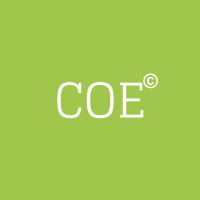Certified in Organizational Effectiveness Practices
Overview of Organizational Effectiveness Practices Certification Program
Format
Duration
5 months of access to the learning content, learning platforms and all resources.
Dates
Fee
Learning and certification exam package
$1200
How is Organizational Effectiveness Practices useful?
-
- Lead efforts to support and sustain organizational change.
- Optimize team performance through diagnosis and adopting practices of high-impact teams.
- Take accurate and effective actions to promote employee engagement.
- Enhance the motivational power of work through work redesign efforts.
The COE© Exam & Learning Package includes 5 courses. The courses cover topics in the organizational effectiveness phase of employee life-cycle.
This courseware is designed, keeping in mind with the needs of talent management professionals to learn the material and maximize it in their work projects. Users have access to the HCG Learning Management Platform where they can access the courses listed below. Lessons include case studies, step-by-step guides, evidence-based models, webinars, projects, quizzes, and mentor support. Additionally, users have access to job aids and worksheets, which they can readily utilize in their work projects. Read about our success methodology ►
Access duration for this learning package is 5 months.

Description
In this course, participants gain understanding of how talent management systems can create better organizations, better talent and better career. They gain knowledge of what talent management is, how organizations benefit from talent management, characteristics of a high impact integrated talent management system and industry practices in talent management. The course highlights the benefits and costly consequences of not focusing on TM practices.
In this course, participants build capability to:
- conduct a TM system effectiveness audit
- identify opportunities for integrating TM practices to meet a business need
- assist in the recruitment of evidence based TM professionals
- identify gaps in TM practices compared to industry benchmarks
Tools
This course gives participants access to various tools and worksheets, including:
- TM System Effectiveness Audit
- Industry Specific TM Practices

Description
In this course, participants will learn about practices that minimize resistance and sustain change. It includes learning the material on the steps involved in change management, and requirements to prepare leaders to lead change. The participant will also learn how to measure climate and culture, and how to change organizational culture. The course will present a validated change management model and evidence on what works in change management. Finally, participants will learn to evaluate the impact of change and create an action plan for continued improvement.
In this course, participants build the capability to:
- recognize the signs when change management is required
- assess climate and culture related barriers to change
- lead a conversation on the options to culture change
- support the process to define the changing purpose
- support the identification of risks associated with the change process
- lead /support the change process to prepare for the change
- identify the sources of resistance to change and prepare to
- address the resistance
- prepare leaders to lead change
- play the role of a change agent
- support the change team in anticipating the trajectory of change and prepare to overcome obstacles and dips in performance
- create a plan to communicate the change
- lead efforts to evaluate the impact of change and create an action plan for continued improvement
Tools
This course gives participants access to various tools and worksheets, including:
- Instrument to Assess Organizational Climate
- Guide on Assigning Roles and Responsibilities to the Change Team
- Current State and Future State Analysis – Interview Questions
- Gap Analysis Template
- List of HR Competencies to Support Change
- Sample Change Communication Plan
- Steps in Implementing Total Organizational Change
- Taxonomy of Organizational Risks
- Tools for Spotting Change Implications

Description
In this course, participants will learn about the validated models of team formation and characteristics of high impact teams. They will also learn to conduct a team diagnosis and the steps required to promote team effectiveness. This course includes materials on the characteristics of virtual teams, self-managed teams and the impact of team diversity on team effectiveness.
In this course, participants build the capability to:
- help conduct a team diagnosis
- advise a team on improving their effectivenesssupport the
- formation of a new team
- assist in the selection of team members
- identify an appropriate type of team training
- assist in the design of team training
- evaluate the effectiveness of a team
Tools
This course gives participants access to various tools and worksheets, including:
- Guidance for Selecting the most Appropriate Team
- Training Intervention
- An Instrument to Conduct a Team Diagnosis
- Guidance for Defining and Assigning Team Roles
- A Team Leader Skills Questionnaire

Description
In this course, participants will learn about the scientific basis of employee engagement and the outcomes it drives. Through steps, tools, examples and case studies, participants will learn to recognize the signs that point to the need to address employee engagement. They will also become equipped to identify the actions required to create an engaged workforce.
In this course, participants build the capability to:
- guide the organization in building an accurate
- understanding of employee engagement
- support market campaigns and communication efforts to
- build awareness about employee engagement
support efforts to design studies to measure employee engagement - support the data collection, data analysis and interpretation of employee engagement studies
- identify interventions to close gaps in employee engagement
- evaluate employee engagement programs
Tools
This course gives participants access to various tools and worksheets, including:
- Employee Engagement Assessments
- Guide to Defining Employee Engagement in the Context of the Organization
- Tool to Draw Conclusions from the data and Build a Case for Employee Engagement
- Sample Data Interpretation and Action Planning Guide
- Employee Experiences Survey
- Employee Experiences
- Survey Scoring Sheet
- Employee Engagement Interview Guide

Work design or job design is the process of structuring jobs to satisfy the motivational needs of employees while optimizing work outcomes.
Description
In this course, participants will learn about models of work design, when work design is an option and how organizations can benefit from work design. Additionally, they will learn about different types of work design and the steps in designing and redesigning work. Participants will also learn the strategies to effectively implement new job design by incorporating changes in the performance management system and designing effective reward systems. The course includes special topics on teamwork and improving quality of work-life, and case studies
In this course, participants build the capability to:
- Guide conversations on the motivating potential of work design interventions
- Help managers select between work design options
- Design flexible work options
- Help managers and incumbents focus on the work dimensions that promote work motivation
- Perform the steps in designing work
- Conduct an evaluation of the work design process and outcomes
- Conduct work design options for individuals and teams
Tools
This course gives participants access to various tools and worksheets, including:
- Job Enlargement Template
- Job Enrichment Template
- Job Rotation Tool
- Job Rearrangement Tool
- Job-related Challenges Tool
- Questions to Consider when Redesigning or Creating New Jobs
- Identify the best Job Design Option – Guide
- Dreyfus Model of Skill Level
- Job Leveling Matrix
- Work Design-Needs Analysis Guide
- Work Design Options Guide
This learning and certification package includes the training segments and a certification exam.
Certification Requirements
-
- Complete the learning segments listed in the training tab, including the accompanying mandatory webinars, and quizzes.
- Complete projects achieving a minimum score of 70%
- Comprehensive Exam
- Take a comprehensive exam covering the five topics and achieve a minimum score of 70%.
– Computer-Based Testing (CBT)
– Multiple-choice questions selected based on expert panel evaluations
All certifications are valid for 3 years. To maintain the certification credentials, you must stay current in this area of expertise, build upon your knowledge, and grow as a professional in your field. Recertification requires retaking the exam.
How is Organizational Effectiveness Practices useful?
Who are the faculty for this Organizational Effectiveness Practices course?
Talk to an expert
PARTICIPANT’S COMMENTS
I was initially hesitant on the HCG COE program due to it being 100% online – in the past I have favored in-person teaching and collaboration. Turns out, I was fortunate it was (due to Covid-19).
I have taken great programs before, most notably Prosci’s Change Management Certification program, but have to admit that I have never had the amount of instant applicable material like I have had with your COE track. The project work throughout the course was amazing and provided an opportunity for me, my colleagues and my supervisor to put “to the test”. We have or are currently utilizing some of the concepts around Engagement, Change Management and Team Effectiveness as a result. Very exciting indeed! The passion that Shreya and the team have provided from our introductory call to completion have been appreciated. Thank you for doing what you do regarding evidence-based talent management, this was a key deciding factor for me at the front end.
______________________________
Am I Eligible?
Best suited for
-
- HR generalists/business partners/managers
- Talent management consultants
- Organizational development professionals
The Faculty for this Talent Management Specialist Learning Package

Shreya Sarkar-Barney. Ph.D.
ORGANIZATIONAL EFFECTIVENESS
Learning and Certification Exam Package
Fee: $1200
organizational Effectiveness
Learning Package only
Fee: $890
ORGANIZATIONAL EFFECTIVENESS
Certification Exam only
Fee: $410

